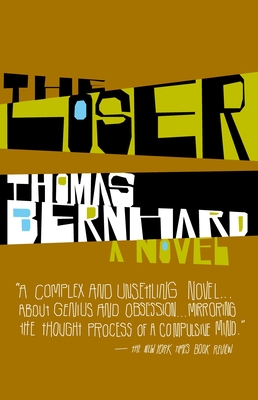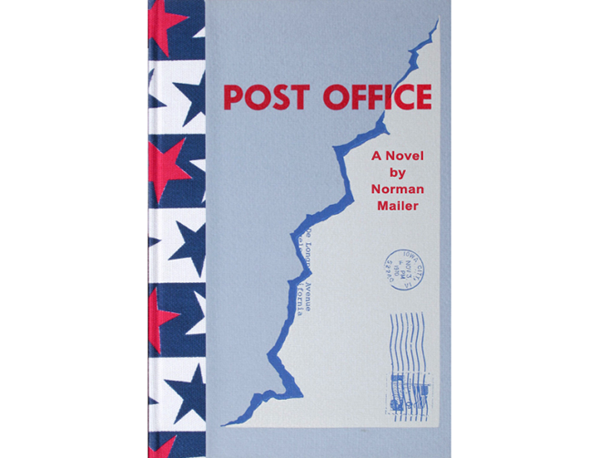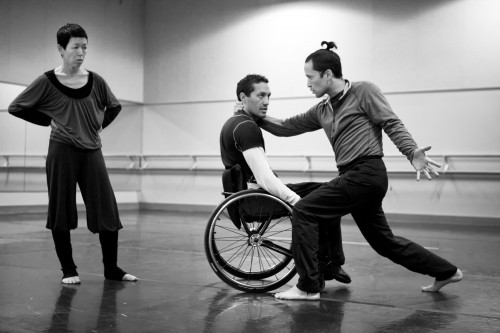The Adventures of Bluey and the Childhood Writings of Paul Bowles
“Drugs, bigamy, desertion, lawsuits, the plague: these are hardly the elements one expects to find in the writings of a nine year old.”
—Christopher Sawyer-Lauçanno, biographer of Paul Bowles
When Paul Bowles was 9 years old, he created a diary that documented the adventures and pitfalls of imaginary characters who went on wild journeys and were continually surrounded by death, disease, chaos, and crisis—all of which were conveyed by little Paul in a tone that is eerily mute, terse, and affectively stunted while also being intellectually sophisticated and highly developed in terms of narrative. The 3rd person diary entries have a strange and disturbing quality to them—we immediately pick up on Paul’s obsessive preoccupation with names (characters, places), numbers, measurements, etc. In the entries, Paul invented, among other things, a drug called “postage hypodermic” and a plague called the “Green Horror” (“Marshelle gets Green Horror. Marshelle dies of Green Horror…. Dukol Whitman dies of Green Horror….”). We also get a sense of the way he was trying to emulate the adult world and—in doing so—revealed its utter absurdity. I can’t get over how evocative and fascinating Paul’s childhood writings are—and to think that he had to pen them in secrecy, fearing the disapproval of his father, who once beat him and took his journals away for 2 months when he was caught scribbling.
Below the cut is a brief excerpt from Paul’s childhood narrative, which consists of over 450 entries in total. This particular passage, which was published by surrealist literary magazine View, deals with the mishaps of Bluey Laber Dozlen, who travels to Wen Kroy (“New York” spelled backward) from an unknown European city.
READ MORE >
{LMC}: January’s Selection: Ploughshares
Our third selection for Literary Magazine Club is Ploughshares, a literary magazine based out of Emerson College in Boston, MA. Ploughshares has been publishing since 1971 and is widely considered one of the most pre-eminent literary magazines in the country. Pre-eminence, is of course, a relative concept but many great writers have been published by Ploughshares and they’ve been publishing continuously for 40 years, which in literary magazine years, feels quite a bit older. Published in April, August, and December, each issue of the magazine is guest-edited by a prominent writer. The issue we are reading this month, Ploughshares 36.4 or the Winter 2010-11 issue, was edited by National Book Award winner Terrance Hayes. In his introduction, Hayes writes, “Some say imperfect lines don’t belong in a museum, but I think a sentence’s shortcomings make it human. And anyway this museum is not after perfection. Perfection is not only oppressive, it’s boring.” The writing he has selected for this issue promises to be imperfect in really interesting ways. Each week this month, starting this coming Monday, I’ll post a question that has come to me as I start reading through this issue so we can generate some discussion.
Why are we reading Ploughshares? Why the hell not. After announcing this month’s selection, one member voiced the concern that a magazine like Ploughshares doesn’t really need the extra attention it might get by being one of our selections. He felt our attention would better be directed to lesser known magazines rather than one with a higher, national profile. I understand that concern but at the same time, there’s a lot to discuss about and learn from a magazine like Ploughshares that is well-organized, well-funded, and well-regarded. In the realm of literary magazines, that combination of qualities is rare. You often have excellent magazines that aren’t well-funded or well-funded magazines that aren’t necessarily excellent. I also think there are interesting things to talk about when talking about a high profile literary magazine. Is the reputation deserved? Why? How much does reputation matter? How does it influence as both as readers and writers? Is the guest editor structure a useful one? What do those different perspectives bring to the magazine that a single editor cannot? In what ways does using guest editors, perhaps, detract from a unified voice for the magazine? What can new or lesser known magazines learn from more well-established magazines? How can independent magazines achieve a Ploughshares like reputation without university support? Is such a thing even possible or desired by the editors of independent magazines? There are countless other questions but more than anything I feel that success does not inherently make a magazine less interesting. The notion that it does feels short sighted.
The content from this issue that’s available online rotates each day so you can sample the offerings and participate that way. The best way to get the magazine though is to buy it. Even magazines like Ploughshares need reader support. Information about ordering (well worth it) is also available on the issue’s main page. As always, if you’d like to write a guest post about any aspect or piece(s) in this issue, or if you would like to join the Google Group, please e-mail me at roxane at htmlgiant dot com. I would love to hear from you. I look forward to our discussion this month! In February, we will be reading Unsaid 5. If you haven’t gotten ahold of this magazine, get on it! You will be blown away.
On over-writing, distance, fiction, theater, and film: A series of disorganized thoughts
Last night, I saw Black Swan.
Last night, I read Linda Lê’s The Three Fates.
Last night, I didn’t fall asleep until after 4am.
The first two things contributed to the last thing. I’m usually a very good sleeper. It’s one of the few ways I cope with anxiety: sleep. It is something I’ve trained myself to do since I was a kid. That sounds stupid, but I’m sure a lot of people here have problems sleeping. We’re an anxious lot, what else can I say?
Last night, while I was trying to get to sleep, I kept thinking about Linda Lê’s book. The Three Fates is a book about a two sisters and a cousin (the three fates) who want to bring their old father (called King Lear) from Vietnam to France to show off their successes. The three fates were whisked away from Vietnam before the fall of Saigon. Their father remained. The book is written in this hyper-stylized way, seemingly over-written, over-the-top, a fairy tale with characters unabashedly stolen from other literary works (notably: plays). What sticks to me with this book though is how over-written it is. Every sentence is excessive. If this were a fiction workshop, I’d write next to every single line: “Over-written.”
Bernhard, etc.
 There have been several mini-posts on this site about Thomas Bernhard this week. One of our readers, Jonathan Callahan, pointed me toward an essay he wrote in the Collagist about Bernhard, Kafka, what he calls phrase-level and sentence-level virtuosity, reading in translation, and more. It’s an essay in the active Montaignian sense rather than the write-to-thesis sense. Probably someone here has linked to it before, but even if so, it deserves another look. Here’s an excerpt:
There have been several mini-posts on this site about Thomas Bernhard this week. One of our readers, Jonathan Callahan, pointed me toward an essay he wrote in the Collagist about Bernhard, Kafka, what he calls phrase-level and sentence-level virtuosity, reading in translation, and more. It’s an essay in the active Montaignian sense rather than the write-to-thesis sense. Probably someone here has linked to it before, but even if so, it deserves another look. Here’s an excerpt:
Maybe it’s best to begin by considering what it actually means to achieve effects on the reader at either of these levels. “Phrase-level” effects, as I conceive of them, reflect the writer’s scrupulous attention to individual words and his meticulous shaping of these words into the little phrase sculptures we tend to associate with writing that’s lauded as anything from “lyric” or “beautiful,” to “startling” or “uncanny” (or maybe in some quarters dismissed as “opaque”). There are all kinds of phrasal effects available to the rigorous writer, of course, and writers variously adept at making use of them compose a long gamut that runs from, say, the saguaro-like jut of certain singular phrasings in the stories of Denis Johnson and Amy Hempel, Gary Lutz and early Sam Lipsyte, through the quilted prose-poems of Michael Ondaatje or Anne Carson, into Don DeLillo’s uncanny, disorienting hyper-precision, the entrancing syllabic cadences and capering puns to be found in Martin Amis (by way of Nabokov) or Donald Antrim’s alliterative, consonance-rich lilt, all the way through the lingual looking-glasses conjured in the works of Donald Barthelme and Ben Marcus—but the common element is a kind of lexicalmanipulation. This is where the writer rejects the easy, familiar, or prefabricated phrase, vigorously resists the stale and timeworn, dismantles easy idiom, dispenses altogether with overused figures of speech, and not infrequently is forced to discard reams of what he ultimately deems superfluous or weak.
Here’s the rest: “Some Thoughts that Begin with Kafka and Bernhard but Wind up Straying Pretty Far Afield” at The Collagist.
Geography Thursday #I lost count

“Science is not about verification, it is about falsification. And science is therefore the art of being precisely wrong!” -David Livingstone, The Geographical Tradition: Episodes in the History of a Contested Enterprise
Two Sentences from Bernhard’s The Loser
 In the opening pages of Thomas Bernhard’s The Loser, the narrator says:
In the opening pages of Thomas Bernhard’s The Loser, the narrator says:
If I hadn’t met Glenn Gould, I probably wouldn’t have given up the piano and I would have become a piano virtuoso and perhaps even one of the best piano virtuosos in the world, I thought in the inn. When we meet the very best, we have to give up, I thought.
A List of Things (pt. 1)
1. There is a new issue of Bookslut. In it there is a a really great interview of Kendra Grant Malone by Noah Cicero. Also, some stupid idiot interviewed Michael Earl Craig (again). It’s ok though because Michael Earl Craig is good.
2. I don’t know if people know this, but the NYU creative writing program archives all of its events in podcast form. I listen to this a lot. I’ve listened to that Matthew Zapruder one probably 5 times. There also is an Agriculture Reader reading from the fall of 2009 that I’ve listened to several times.
3. My friend Harriet runs this really nice (print+online) journal called “Her Royal Majesty.” They are now accepting submissions for the next issue.
4. Mike’s (Young’s) book of short stories is now available. Short stories are usually a little bit longer than poems are.
5. I went to this Publishing Genius book tour thing two nights ago in Chicago. It was fun as hell. If you’re in Minneapolis you can go too. (Hurry.)
6. There is a MuuMuu House DVD available. It’s a DVD of a MuuMuu House reading in Ohio (and other things) — featuring Tan Lin, Susan Boyle, Michael Jordan, Marcus Cicero, and Mallory Whitten.
7. After the jump is a semi-NSFW youtube vid. It’s more weird than anything. If you can make it past the first 10 seconds it’s pretty rewarding.
assist
This semester I teach a service learning creative writing class. I am excited and anxious (first time I’ve taught the class). “Service learning” palms a galaxy of definitions. Here is mine, as I’ve been thunking on it:
1. You must have a focus. I do. Empathy at its core, and I might write more expansively here later about this complex idea (and the word empathy itself), but my concept includes a literature list, books, excerpt readings, the power of writing, to show, to act as an actual social tool. Like a hammer. Seriously: Like a hammer.
2. You must engage with the community. Feet on ground, ass in seat. We will. The students will meet a minimum of 7 times—in one semester–with their community partners. We will create a print anthology and give a public reading, in a space OFF university grounds.
3. You must reflect. Why even do this? It’s not enough to say, “it’s a good thing”, “giving back” “whatever cliché.” Blar. I think the class, for the students, is pretty meaningless without serious reflection on the process, or why community work is even important, or why we might want to even talk/walk with someone not ourselves. So what? Always a great question. I want the students to answer me when I kindly and firmly ask, “So what?”
Anyone taken one of these classes? Taught one? Any advice? I’m not jesting—I haven’t done this. Any exhortation, forewarning, steer, 2.4 cents worth? What is service learning to you? Our model is, as writers with CW writerly skills (many prerequisites to take this class), to “tell” the stories of marginalized populations. The writers and partners meet to tell the community partner’s story (one or many), in a poem, story, or essay. Is that the best way? What do you think?





